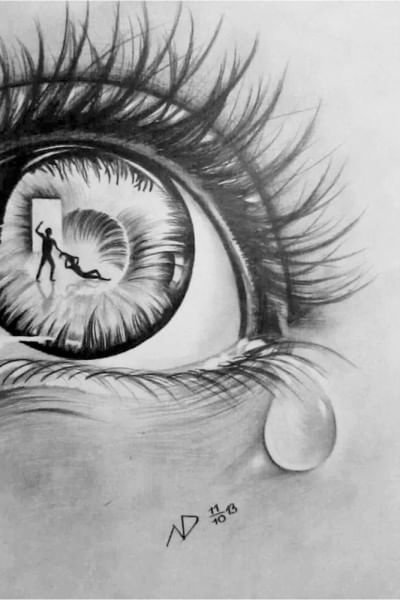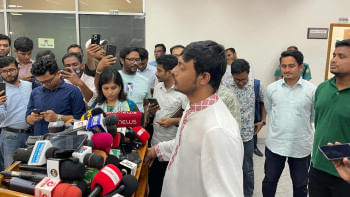Lessons from Aduri's ordeal

Tuesday's verdict by a special court in Dhaka, which sentenced Nawrin Jahan Nodi to life imprisonment for torturing an 11-year-old domestic help, Aduri, and dumping her into a dustbin assuming she was dead, should give us immense satisfaction. This is because while we often get the news of the abuse of child domestic workers from the media, it is rare to hear about the abuser being punished, let alone given a harsh sentence by the court. And we know why this is so. The social status of the abuser, usually the employer or a relative of the employer, provides a certain kind of immunity against legal action being taken. Human rights lawyers have often expressed their frustration at the inevitable out-of-court settlements that the victim's family agrees to – out of fear of repercussions and because they do not believe they will actually get justice. Parents send their children to work in houses because they cannot afford to feed them. They also think that their children will live in a safe, respectable environment. Until their children are left broken by their employers.
This time, however, the persistent efforts of BNWLA (Bangladesh National Women Lawyers Association), a human rights and legal aid organisation, as well as the extensive coverage of the electronic and print media, have paid off and resulted in Aduri, now a teenager, getting justice. The 2013 images of an emaciated Aduri, her eyes vacant and her face and body displaying the gruesome wounds left by her employer, evoked shock and disgust among people. But sadly, until Tuesday, most of us had forgotten about Aduri and her nightmarish ordeal. Because there have been so many other cases after Aduri, of children working in households being subject to the worst kinds of physical torture. And in most of these cases, after the initial sensation created by the horrific details and images, the news died down and everybody forgot about that child who will never forget the nightmare of being at the mercy of a sadistic stranger. The news of this groundbreaking verdict has reminded us once again of the extent of cruelty human beings are capable of.
"What was her husband, her mother doing when it was obvious that the child had been abused? Were they active participants or silent bystanders? Did no one, not a single neighbour, hear the shrill cries or mournful groans of that little child as she lay writhing in pain in the veranda where she slept?
The details of Aduri's case are sickening. It indicates a systematic torture of a child by a monster in the guise of a middle-class housewife. Eleven-year-old Aduri was allowed only one meal a day – some puffed rice or rice with salt – at night. But being practically starved was a mild form of abuse compared to what Nawrin Jahan Nodi did to this child. According to Aduri, Nawrin would torture her on a regular basis. She would cut Aduri's face, scalp and parts of her body with a blade, burn her with a hot iron or heated spatula, beat her with sticks and so on. One day, when it seemed Aduri had succumbed to her wounds, Nawrin dumped her in a dustbin – the ultimate manifestation of her contempt for a child whose only crime was that she was poor, helpless and had no way of escaping. Even after four years in her mother's care, the child is visibly traumatised. She is no longer emaciated but her face has the deep marks of the barbarity she has experienced. She still has nightmares in which Nawrin continues to torture her.
It is shocking when we read news of such savagery or watch it on television. But why are we so surprised? Have we not heard of people beating up their child domestic worker? It has happened among our relatives, in our innermost circles – even within our own households. We may not be direct abusers but in many cases we are silent spectators, not wanting to disrupt the status quo or be at odds with people from our own social status. The fact that Aduri had to be dumped half dead into a dustbin for the nation to know about her ordeal and then for the court to sentence her torturer, is ample proof of the implicit complicity within privileged classes that overlooks abuses committed by one of their own. The victims, after all, are just domestic workers, they are from the voiceless, powerless, representation-less section of society. They are dispensable and of no consequence.
If this is not how it is, then why didn't anyone stop this monster? What was her husband, her mother doing when it was obvious that the child had been abused? Were they active participants or silent bystanders? Did no one, not a single neighbour, hear the shrill cries or mournful groans of that little child as she lay writhing in pain in the veranda where she slept?
These are uncomfortable questions but ones that we must answer. As a society we are all part of this shame – the government for not banning child domestic labour which, by definition, should fall under hazardous work, the legal system that has too many loopholes for abusers to go scot-free, individuals who think nothing of making a child do adult work and depriving her/him of school, absence of laws to specifically protect child domestic workers' rights and all those of us who do absolutely nothing when a child worker gets hit, cursed or treated with utter disrespect and negligence. We can no longer feel good about ourselves by saying we are not like Nawrin or any of those other members of so called "respectable society" who have displayed their basest instincts and got caught.
Yes, we are reassured by the verdict that has given justice to this brave child. But this is just one case. Children, especially from marginalised groups, are vulnerable to all kinds of abuse in our society, and when they are confined to households as domestic help, they are doubly vulnerable. If we cannot reverse this frightening reality we will have failed as members of the human race.
Aasha Mehreen Amin is Deputy Editor, Editorial and Opinion, The Daily Star.





Comments